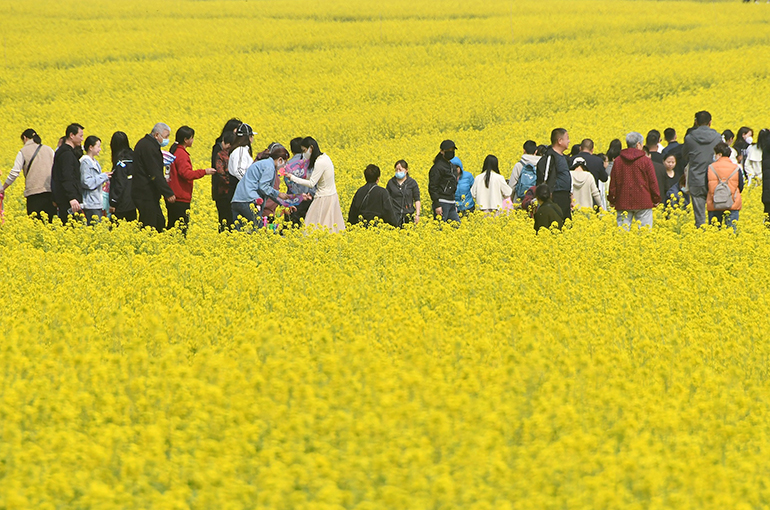 Chinese Rural Residents' Domestic Trips, Tourism Expenditure Surge Nearly 40% in First Quarter
Chinese Rural Residents' Domestic Trips, Tourism Expenditure Surge Nearly 40% in First Quarter(Yicai) April 28 -- The number of domestic trips made by Chinese rural residents in the first quarter of the year, as well as their spending during their travels, soared nearly 40 percent, mainly thanks to rising income and improved infrastructure.
Nearly 1.8 billion domestic trips were made in China in the three months ended March 31, up over 26 percent from a year earlier, according to data from the Ministry of Culture and Tourism. Urban and rural residents accounted for 1.3 billion and 476 million, up 22 percent and 39 percent, respectively.
China's total tourism expenditure climbed 19 percent to CNY1.8 trillion (USD247 billion), with rural residents spending CNY320 billion (USD44 billion), up 40 percent in the period, data from the ministry also showed. Urban residents contributed CNY1.48 trillion, up 15 percent.
The rapid growth in rural residents' income in recent years has boosted their tourism demand, Ding Changfa, associate professor at Xiamen University's economics department, told Yicai. Improved rural infrastructure, more tourist attractions, and free-entry policies also attracted more local visitors, he added.
Last year, China's per capita disposable income after deducting the price factor rose 5.1 percent to CNY41,310 (USD5,670), according to data from the National Bureau of Statistics. Urban and rural residents earned an average of CNY54,190 and CNY23,120, up 4.4 percent and 6.3 percent, respectively.
Smaller cities and rural counties are emerging as key drivers of consumption growth, including tourism. The consumption potential of third- and fourth-tier cities and county-level regions is steadily unlocking.
In the first quarter, retail sales of consumer goods in townships and villages accounted for 40 percent of China’s total. Rural retail sales climbed 4.9 percent to CNY1.66 trillion in the first three months of the year from a year earlier, up from 4.6 percent in the first two months, said Yu Jianxun, director of the trade and external economic relations department at NBS.
Another factor to take into consideration is that many people now extend their Chinese New Year holiday to visit family in rural hometowns, said Peng Peng, executive chairman of the Guangdong System Reform Research Society. This shift reflects rising income, improved transportation network, and evolving and advancing consumption patterns, he explained.
Editor: Futura Costaglione